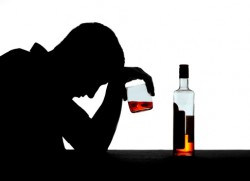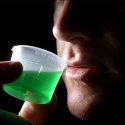Recognizing the Need for Alcohol Treatment Centers
Compared to drug addiction treatment rates, alcoholism is the most untreated disease in the U.S., according to the Florida Institute of Technology. On average, only 1 out of every 36 people suffering from alcoholism actually gets help. Though alcoholism is officially classified as a disease, it’s a treatable condition. Alcohol treatment centers specialize in applying proven methods for treating alcohol addictions.
Perhaps the biggest and first hurdle to seeking treatment requires a person to admit alcohol has become a problem in spite of how it “seems” to make life easier to manage. As addiction makes it all but impossible to ignore alcohol’s destructive effects in a person’s life, sometimes deteriorating circumstances make the decision to get help easier to make. Certain telltale signs can make the need for seeking out an alcohol treatment center all the more pressing.
Addiction

If you find that you are growing dependent on alcohol you may benefit from the services provided at a treatment center.
The word addiction originally comes from the Latin language where it means “bound to” or “enslaved by.” While alcohol addiction has its own set of distinguishing criteria, basically all types of addiction stem from a common underlying brain process.
The main characteristics of addiction, in general include:
- Being unable to control how much a person uses or drinks
- An ongoing, persistent craving for alcohol or drugs
- Ongoing use of the drug in spite of the problems it causes
The more the brain and body are exposed to alcohol the less control a person has to stop drinking. Recognizing these signs in your life or the life of someone you know may be the first step a person takes towards getting help. Alcohol treatment centers can help a person confront the effects of alcohol in his or her life and the effects it has on his or her ability to think and reason.
A Compulsive Need to Drink
The effects of alcohol on the brain eventually develop to the point where a person lives with a compulsive need to drink all the time. Alcohol treatment center protocols realize this process occurs as alcohol gradually changes both the brain’s structure and how it functions. At first, the effects of alcohol bring about a sense of relaxation and calm. The brain’s reward system and learning centers automatically pick up on this and actually encourage more of the same.
Over time, it takes more and more alcohol to see the same desirable effects, so people keep on drinking even when the desired effects get weaker and weaker. The brain has become reconditioned to seek out alcohol’s effects at all costs. Alcohol treatment center programs provide a structured environment where individuals can find the time and space to work on their recovery.
Drinking More and More
The ongoing need to consume larger amounts of alcohol will continue for as long as a person continues to drink. Not only does the mind demand alcohol’s effects, but the body requires the alcohol in order to maintain normal functions. In effect, when left untreated, a person’s tolerance for alcohol will continue to increase until the day he or she dies. Alcohol treatment centers empower a person to break this never-ending cycle of need and cravings.
Considering the debilitating effects alcohol has on a person’s life, it shouldn’t be hard to recognize when it’s time to look in an alcohol treatment center program.

